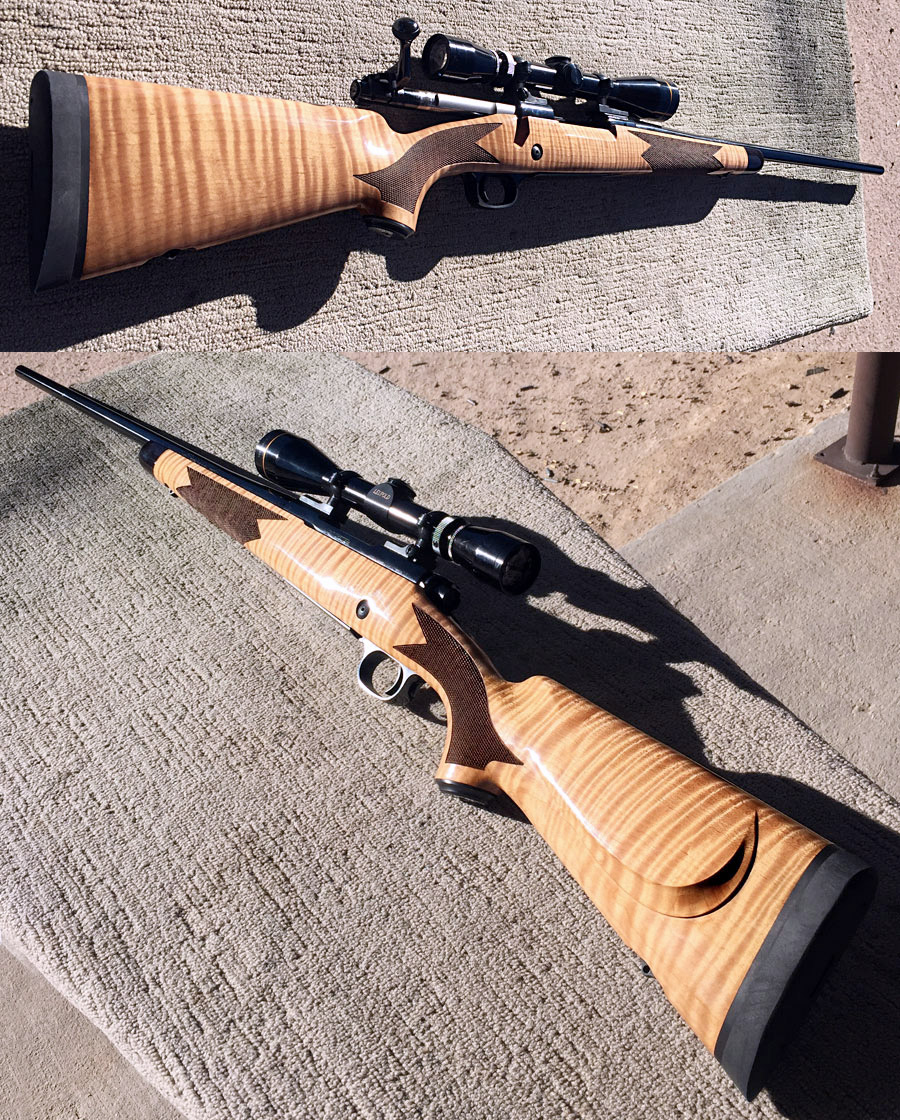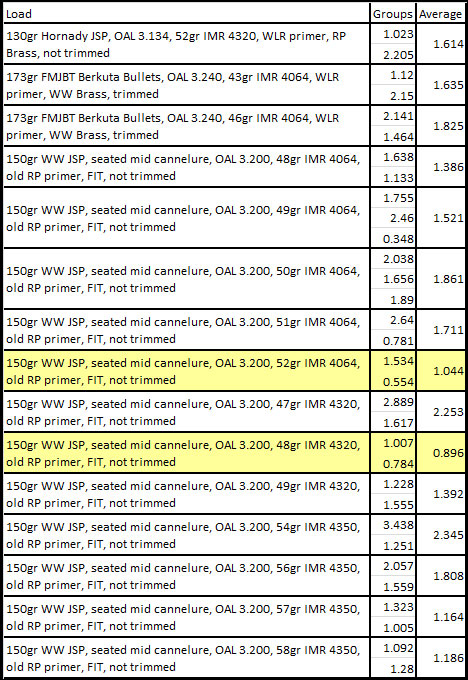
This is a cool story that goes like this…several years ago I decided I wanted to hunt pigs. I had last chased hogs in the woods about 30 years earlier, but I never got one. That was a character flaw I wanted to correct. It was just something I needed to do, but there were consulting gigs overseas, lots of travel, a few epic motorcycle rides, and, well, you know how it goes. Pig hunting stayed tucked away in my mind but I hadn’t acted on it. Then another thing happened: I stopped in a gunshop in northern California and saw a rifle I just had to have. It’s the one at the top of this blog. Specifically, a Supergrade Model 70 Winchester in God’s caliber, the mighty .30 06.
Okay, back to the pig thing. Back in the 1910s folks imported Russian boar into California so rich guys could hunt them without having to spring for a boat ticket to Russia. I guess that worked out okay, but what happened next surprised everybody. The Russian boars loved it over here and I guess they felt right at home. They bred like rabbits. Then, being pigs, they crossbred with domestic hogs. The bottom line? Today, the US has a runaway wild pig problem. If you think you don’t have wild pigs, you either just don’t know it (the more likely case), or you don’t have them in your neighborhood yet (the less likely case, but if you don’t have them yet, you will). Wild pigs are everywhere and they’re destructive. Farmers know they’ll tear up an acre every night looking for food. That’s a problem that guys like me and my good friend Paul are only too happy to help solve.
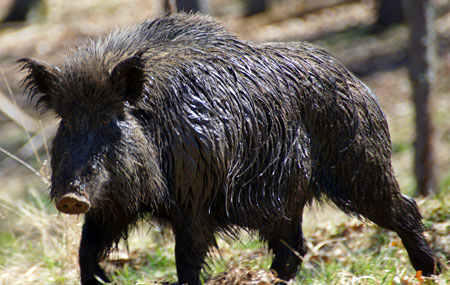
So who’s Paul? Well, I’ve known Paul all my life. We were next-door neighbors back in rural New Jersey in the days when you could set up a range and shoot in your back yard. And we did. We fooled around with guns, we hunted, we fished, we rode bikes…we did the kinds of things kids did 60 or 70 years ago, before they invented ADHD drugs, safe spaces, cell phones, computers, social media, and all the stuff kids today get to struggle with. Rural New Jersey in the 1950s was a good time and a good place to grow up.
There’s more to the story: Our fathers were outdoorsmen, so Paul and I were, too. Both of our fathers were competitive shooters and hunters. Paul’s Dad had a Model 70 in .270 Winchester and my Dad had a Model 70 in .243. In their day, those two cartridges were the hottest and best things going. There have been newer cartridges and newer rifles since, but both the .270 and the .243 are still dynamite chamberings. And the Model 70 Winchester was (and I still think still is) the ultimate rifle. It’s been called the Rifleman’s Rifle. It’s that good. And it’s what our fathers shot.
So when I saw that new maple Model 70, I bought it. Just like that. I knew I would hunt pigs with it. It’s one of the finest rifles I’ve ever handled.
I suggested a pig hunt to Paul, and hey, who could turn down an offer like that? I took the Model 70 you see above, and Paul had his magnificent pre-’64 Model 70 in .270 Winchester. Paul’s Model 70 has a real pedigree: It was handed down to Paul by his father, and this particular Model 70 is rifle royalty. It doesn’t get any better than Paul’s pre-’64 Model 70, and the .270 Winchester cartridge is the quintessential chambering for it. Google Jack O’Connor, the guy who put the Model 70 and the .270 Winchester cartridge on the map, and you’ll see what I mean. O’Connor wrote a book (The Rifle), in which he explains his reasons for the .270’s superiority. I have O’Connor’s book and it’s a great read. That said, I just like the .30 06, but they’re both great cartridges.
Paul’s particular Model 70 (this very rifle, the one Paul used on our hunt) was my first exposure to high-powered, long-distance marksmanship a cool 60 years ago. Paul’s Dad used to fire that rifle across the fields behind our homes in the 1950s. We lived in a rural part of the state, and you could do that in those days. Before Paul’s Dad would send rounds downrange, though, little Pauly would always knock on our door to tell us all hell was about to break loose. That was mighty neighborly, as an unexpected bark from a .270 Winchester would have scared the bejesus out of us (I’m not sure what bejesus is, but I like the word so I’m using it here).
So, back to the more recent past. In preparation for our pig hunt, I worked up a load for my Model 70 and I found the Holy Grail..a load that was both hard-hitting and accurate. Two of them, actually. Here’s how it worked out…
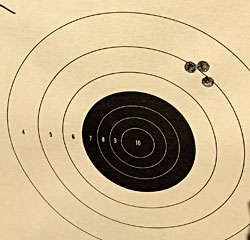
The deal on reloading and these cartridge development efforts is that you experiment with different powders, primers, bullets, and propellant charge weights to find an individual rifle’s sweet spot, and like I said, I found two. Over the course of two days, I fired all of the above loads (at 100 yards), and the bottom one in yellow is the one I used for our hunt. That load uses a 150-grain Winchester jacketed soft point bullet with 48.0 grains of IMR 4320 propellant. I bought a bunch of the 150 grain jacketed Winchester bullets about 10 years ago when it looked liked reloading components might dry up altogether (shooting-gear-related shortages are cyclical, always coinciding with whoever has just moved into public housing at 1600 Pennsylvania Avenue). After I settled on my preferred load, I’ve shot even tighter groups with it. I once shot a 0.244-inch 3-shot group with my Model 70 with the same load. For the targets we would be shooting (hogs, which get big), that’s good enough for government work.
While I was doing all of the above, Paul had a similar load development effort underway with his .270 Winchester. I found the secret sauce for my Model 70, and Paul found the right recipe for his. We were ready.
My Model 70 is a current production rifle and it’s awesome. The Supergrade Model 70s are glass-bedded and free-floated from the factory, the bluing is deeply polished, and the fiddleback maple figure on mine is exhibition grade. It’s not the kind of a rifle you would ordinarily take on a hunt and some folks have told me it’s too pretty to shoot, but I didn’t buy it just to look at the thing. It’s a shooter and it’s very, very accurate. I actually think the quality of the modern Model 70 rifles is better than the pre-’64 rifles (which are generally regarded as Winchester’s best ever), but don’t tell that to Paul.
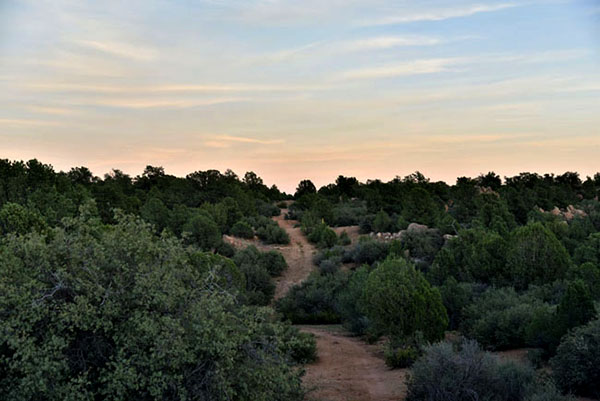
So how did we do? Well, it was one of the best weekends ever. We rolled out to a hilly desert area east of Kingman, Arizona (we were well out in the boonies) and our hunt was hugely successful. Paul got a monster hog the first night out, and I nailed one a bit smaller the next morning. I have great photos of Paul and me posing with our pigs, but if I posted them here it would generate the inevitable comments from folks whose BVDs contract into tight knots over such things. You know, the folks who hate guns and hunting…people who assume their hamburgers come from suicidal cows or whatever. So you’ll have to use your imagination. But they are great photos.
Paul and I both ate pork for a year after that. Roast pork. Barbequed pork. Pork chili. Pork meatballs (pretty good, actually). Pork sandwiches. Pork breakfast sausage (also very good). A special pork/wild mushroom/barley casserole (my favorite). But no bacon. Bacon comes from belly fat and wild hogs are lean, so there is no belly fat. Yep, we had over a hundred pounds of dressed-out pork after our hunt. I came home with a whole cooler full, and I had the little pig. When we figured the cost of the rifles, the ammo, our travel, and the hunt, that pork worked out to about $34 per pound. And it was worth every cent. I’d do it again in a heartbeat.
Want more Tales of the Gun? Just click here!

